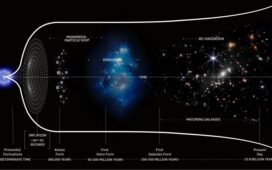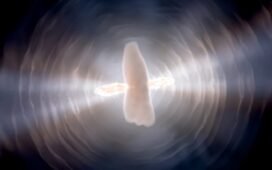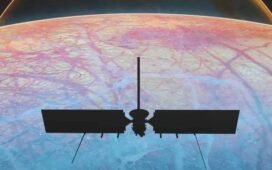Our Universe isn’t just expanding, the expansion is accelerating. Instead of dark energy, could a “lumpy” Universe be at fault?
It’s now been more than 25 years since astronomers discovered “most of the Universe” in an incredibly surprising way. In terms of energy, the most dominant species in our Universe isn’t light, it isn’t normal matter, it isn’t neutrinos, and it isn’t even dark matter. Instead, a mysterious form of energy — dark energy — makes up about ⅔ of the total cosmic energy budget. As revealed by supernovae, baryon acoustic oscillations, the cosmic microwave background, and other key probes of the Universe, dark energy dominates the Universe and has for around ~6 billion years, causing our Universe to not only expand, but for that expansion to accelerate, causing distant galaxies to recede from us with greater and greater speeds as time goes on.
But could all of this be based on an erroneous assumption? Could dark energy not exist at all, and could a lumpy, highly inhomogeneous Universe be the culprit, as one recent study has claimed? That’s what many of you, including Dirk Van Tatenhove, Michael Wigner, and Patreon supporter RicL want to know, inquiring things such as:
“Is the timescape model of cosmic…















